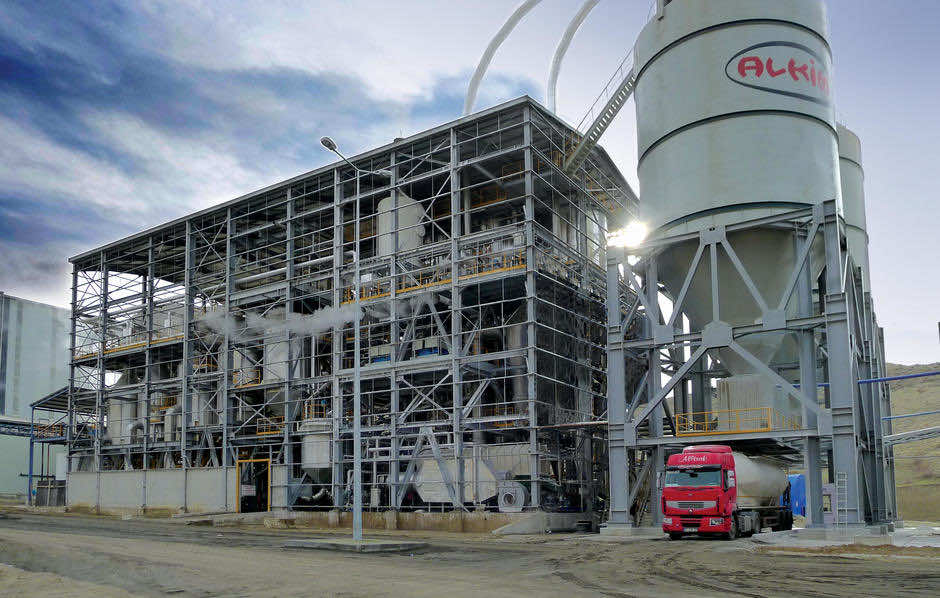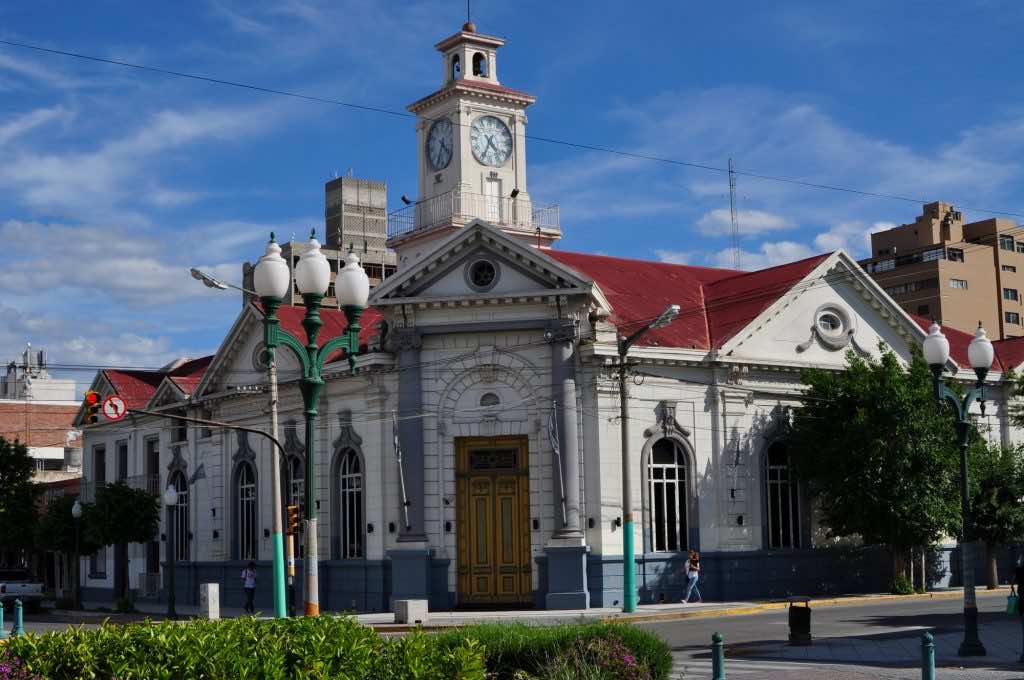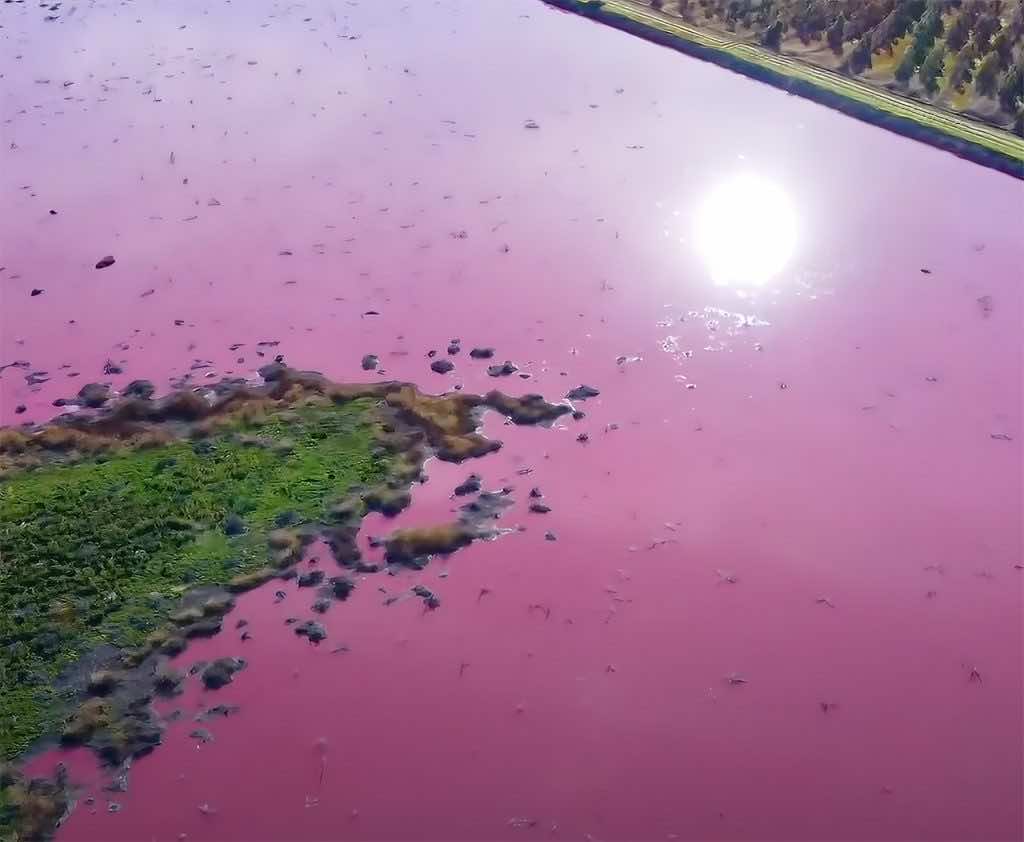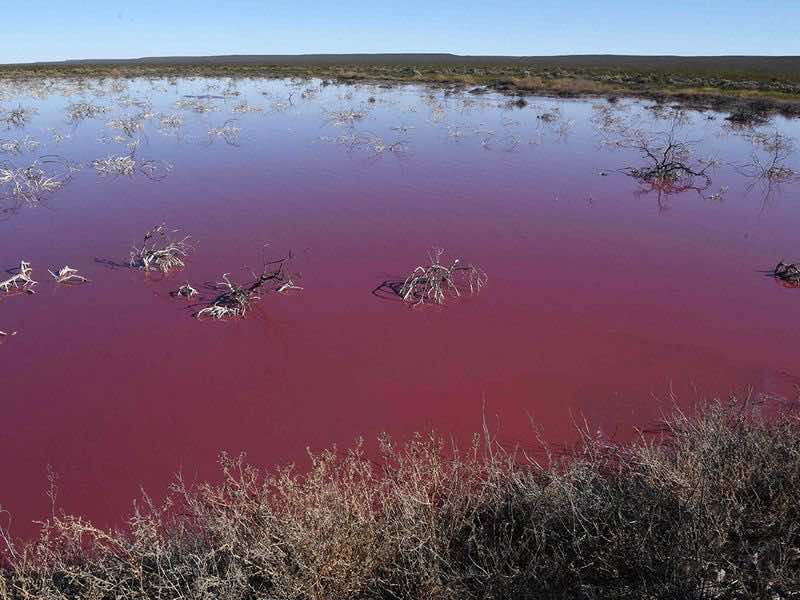A lagoon in Argentina’s southern Patagonia region has turned bright pink in striking but frightful phenomenon experts blame on pollution caused by a chemical agent used in fish factories, Agence France-Presse reports.
The colour is caused by sodium sulfite, an anti-bacterial product used by the Trelew industrial park nearby whose waste is blamed for contaminating the Chubut river that feeds the Corfo lagoon and other water sources in the region, according to AFP.

“Those who should be in control are the ones who authorize the poisoning of people,” environmental activist Pablo Lada told AFP.
Residents have long complained of foul smells and other environmental issues around the river and lagoon. They wanted to get rid of a continuous stream of trucks from the industrial park passing through their town Trelew. The trucks transported fish waste to treatment plants outside of the city via the town.
Fed up with the issue, nearby residents started blocking the roads used by trucks carrying processed fish waste to treatment plants. As a result, dozens of trucks are being turned around every day, according to locals.

“We get dozens of trucks daily; the residents are getting tired of it,” Lada told AFP.
Due to the blockage, provincial authorities granted authorization for factories to dump their waste in the Corfo lagoon instead of disposing waste at the treatment plants in the outskirts of Trelew.
“The reddish colour does not cause damage and will disappear in a few days,” environmental control chief for Chubut province, Juan Micheloud, told AFP.

Sodium sulfite is known to be an antioxidant and preservative. It is primarily used in the pulp and paper industry. In addition, this chemical agent can be used to stop dried fruit from discolouring and preserve meats, including prawns.
However, the officials claim that the pink colour doesn’t harm the surrounding ecosystems, and it will fade away in a few days.

Although the fish processing industry generates thousands of jobs in the region, locals are fed up with their flaunting of environmental regulations. But, especially for environmentalists like Lada, the industrial park’s contributions are compensated by its environmental impact.
“Fish processing generates work… it’s true,” Lada told AFP. “But these are multi-million-dollar profit companies that don’t want to pay freight to take the waste to a treatment plant that already exists in Puerto Madryn, 35 miles away, or build a plant closer.”


